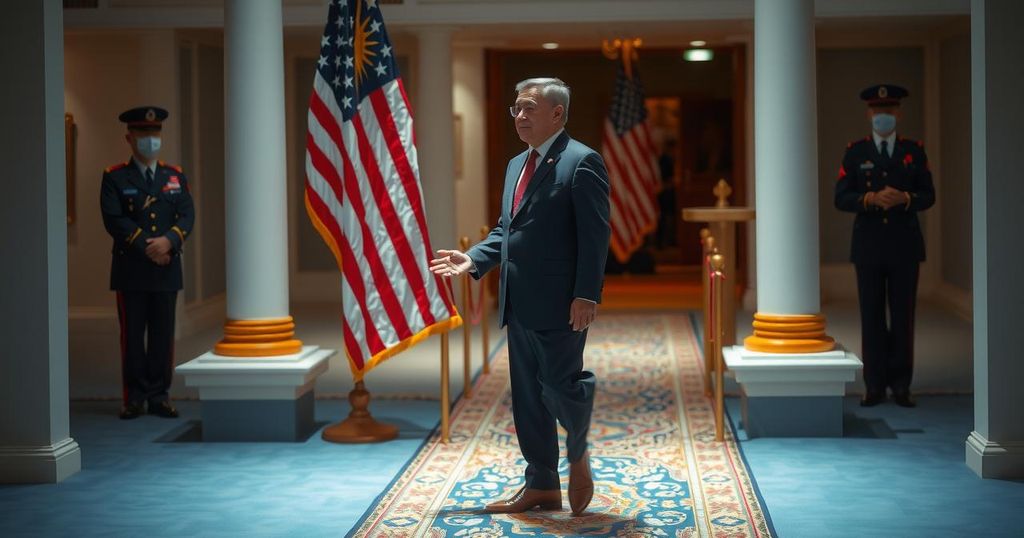Anwar Ibrahim: Balancing Ideals and Pragmatism as ASEAN Chair
Prime Minister Anwar Ibrahim of Malaysia faces the challenge of reconciling his strong support for Palestinian rights with the geopolitical realities of U.S. relations as his country prepares to chair the ASEAN in 2025. His stance against what he perceives as double standards in global politics could risk straining ties with the incoming U.S. administration, particularly under Donald Trump.
Malaysian Prime Minister Anwar Ibrahim steps onto the global stage as his nation prepares to assume chairmanship of the Association of Southeast Asian Nations (ASEAN) in 2025. Known for his robust advocacy for Palestinian rights amidst the ongoing conflict in Gaza, Anwar faces the delicate task of balancing his principled stance with the pragmatic realities of international politics. His commitment to human rights resonates with many, yet his vocal support for Palestinians may jeopardize his relations with the United States, particularly under a new administration that is sympathetic to Israeli interests.
Throughout his political career, Anwar has leveraged his wealth of experience within Southeast Asian politics, even during challenging periods, such as his wrongful imprisonment. His extensive political network provides him with unique insights into the region’s complexities, which inform his firm position on the Gaza conflict. However, his growing tensions with U.S. diplomacy could complicate Malaysia’s foreign relations, especially given the incoming U.S. administration’s pro-Israel stance led by Donald Trump.
Recent discussions among Malaysian lawmakers highlighted concerns regarding Anwar’s Gaza advocacy. A senior lawmaker revealed that U.S. envoys recently characterized Anwar’s position as “their biggest problem” with his leadership. Such commentary emphasizes the tricky balance Anwar must achieve between advocating for justice and maintaining essential diplomatic ties, particularly as he criticizes perceived U.S. and European double standards on human rights.
As Anwar prepares to guide ASEAN, he must reconcile his ideals with the geopolitical pressures that come with leadership on the world stage. This intricate dance of diplomacy could define his legacy as a statesman and determine Malaysia’s role in regional and global matters significantly influenced by both humanitarian issues and geopolitical alliances.
The article discusses Malaysian Prime Minister Anwar Ibrahim’s navigation of international diplomacy amid his strong stance on the Israeli-Palestinian conflict, particularly as Malaysia is set to lead ASEAN in 2025. Anwar’s advocacy for Palestinian rights is built on a foundation of personal and political experiences that shape his worldview. However, this position may place him at odds with the United States, especially with Donald Trump expected to take office, potentially putting existing diplomatic relationships under strain. The context of U.S.-Malaysia relations and Anwar’s history highlights the complex political landscape within which he operates.
In conclusion, Anwar Ibrahim’s leadership embodies a challenging intersection of idealism and pragmatism as Malaysia approaches its ASEAN chairmanship in 2025. His robust support for Palestinian rights reflects his commitment to human dignity yet risks creating friction with U.S. relations under a more pro-Israel administration. Balancing these competing interests will be crucial as he charts a course for Malaysia’s role in both regional and international arenas, especially in light of ongoing geopolitical tensions.
Original Source: www.scmp.com




Post Comment